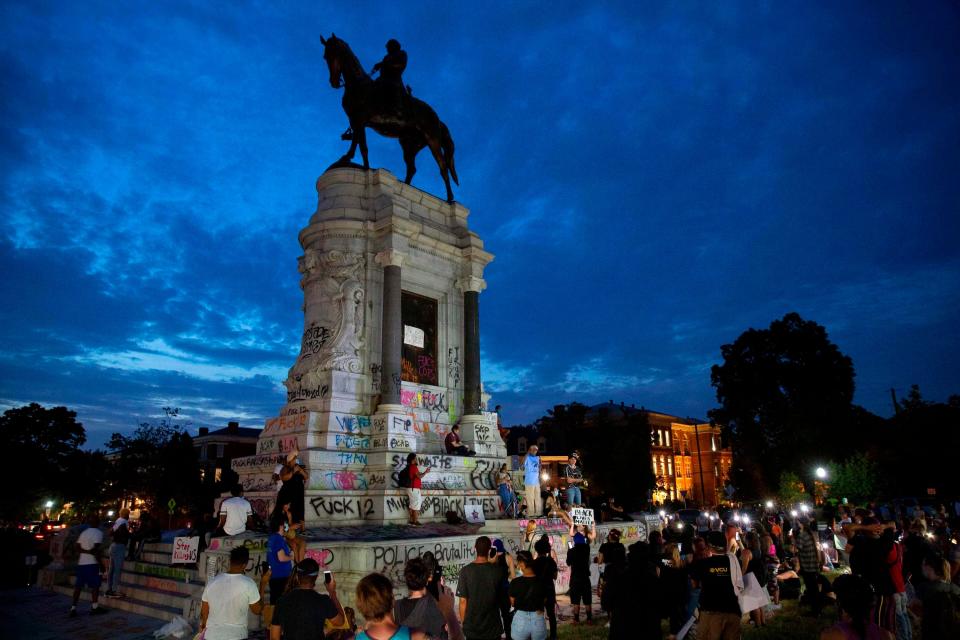Why a Judge Just Stopped the Removal of Robert E. Lee's Statue in Richmond

Just days after Governor Ralph Northam of Virginia announced the long-awaited removal of the well-known Confederate monument of General Robert E. Lee in Richmond, Judge Bradley B. Cavedo placed a 10-day injunction on Monday that stopped any further action to the statue.
The lawsuit is being pursued by local resident William C. Gregory. He possesses an 1890 deed signed by his great-grandparents, in which the state agreed to “faithfully guard” and “affectionately protect” the statue. “[Gregory’s] family has taken pride for 130 years in this statue resting upon land belonging to his family and transferred to the Commonwealth in consideration of the Commonwealth contractually guaranteeing to perpetually care for and protect the Lee Monument,” NPR reports. How the words in the 1890 deed are interpreted in the court of law could sway the decision one way or another.

US-POLITICS-RACE-UNREST
At this time, final decisions have yet to be made, but Northam’s administration isn’t backing down. “Governor Northam remains committed to removing this divisive symbol from Virginia’s capital city, and we’re confident in his authority to do so,” spokeswoman Alena Yarmosky said in a statement.
Moreover, protestors standing up for the recent unjust deaths of George Floyd, Breonna Taylor, Ahmaud Arbery, and Tony McDade due to police violence are taking matters into their own hands. On June 9, at around 9 p.m., a passionate group knocked down a Christopher Columbus statue, set it on fire, and threw it in a lake in downtown Richmond. "Anything that oppresses people of color needs to go," a speaker at the rally said to the crowd. It’s clear where many stand regarding the future of their city. Unfortunately, rewriting history isn’t that easy. “The failure to enter an injunction would allow the commonwealth to breach its contract with impunity,” Gregory’s case states.
Interestingly enough, Lee himself was never in favor of these monuments. “I think it wiser...not to keep open the sores of war but to follow the examples of those nations who endeavored to obliterate the marks of civil strife, to commit to oblivion the feelings engendered,” he wrote in proposition of a Gettysburg memorial in 1869. Despite all the popular support, the court still has roughly one week to decide the fate of the statue.
Originally Appeared on Architectural Digest

